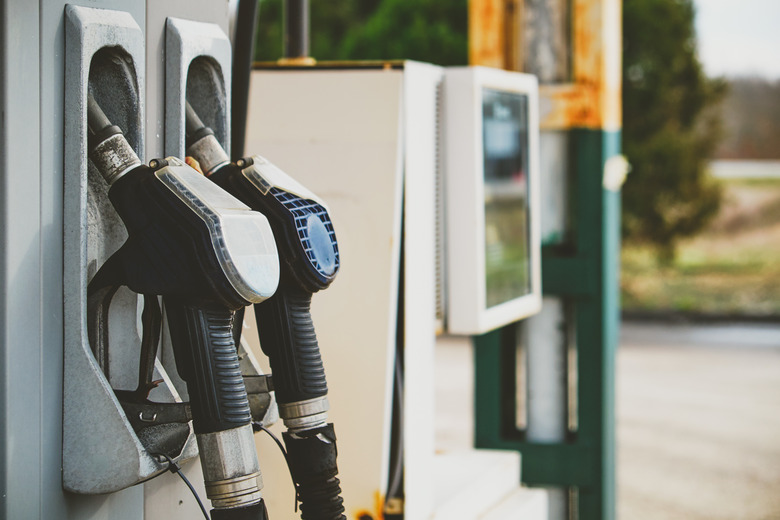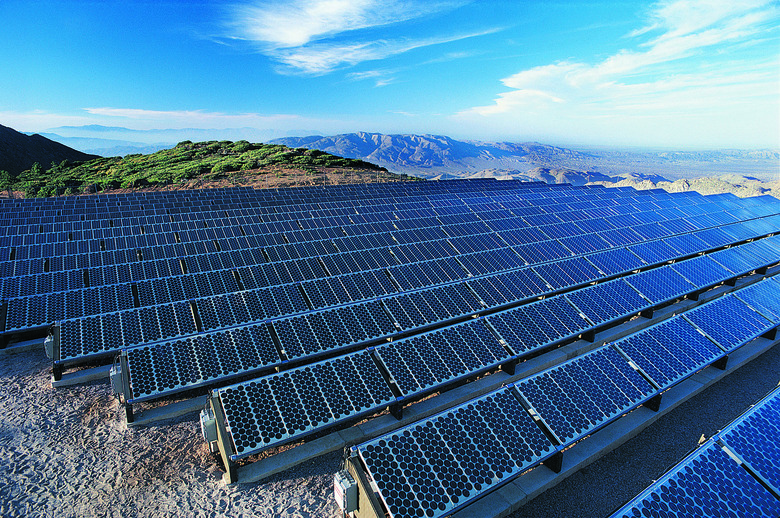Fuels Used In Our Daily Life
The world depends on a great deal of its energy in the form of fossil fuels. Examples of fuels include gasoline, coal and alcohol. Most of the fuels come from non-renewable sources; once used, they are gone forever. Each day, people bathe, cook, clean, do laundry and drive using various types of fuels. A quick review of different fuels reveals the important roles they play in daily life.
TL;DR (Too Long; Didn't Read)
Important fuels used in everyday life include gasoline, coal, natural gas and diesel fuel.
Gasoline - Essential for Transportation
Gasoline – Essential for Transportation
The most obvious fuel used in daily life runs cars, school buses and trucks. Gasoline and diesel are non-renewable fuels created from crude oil deposits in the ground or beneath the oceans. Lawnmowers and other maintenance equipment also run on gasoline. Construction sites power backhoes, dump trucks, cranes and other equipment with diesel.
Natural Gas - Heating and Cooking
Natural Gas – Heating and Cooking
Natural gas can power the heating systems, stove tops, water heaters and dryers in your home. Natural gas burns very cleanly and creates abundant energy when burning, according the Natural Gas.org. This type of fuel is mostly comprised of methane but can contain other gases as well. Natural gas often occurs as underground pockets near oil deposits. Oil emits gases that rise to the higher levels of underground pockets of oil trapped within rock layers. Wells tap into these pockets to remove the natural gas for use in your home.
Coal - Electric Power
Coal – Electric Power
Many electrical plants burn coal as the primary fossil fuel for powering the electrical supply for homes across the country. According to the American Coal Foundation, coal-powered electricity fuels the electrical needs for more than half of all U.S. homes. Machines crumble the coal into small particles that get placed inside a furnace. The coal gets burned to heat water that creates steam that fuels a turbine to create mechanical energy. This mechanical energy converts to electrical energy in a generator then gets transmitted through substations that deliver electricity to customers.
Alcohol - Gasoline Helper
Alcohol – Gasoline Helper
Alcohol has played a major role as a fuel supply in recent decades. In particular, alcohol, or ethanol, made from corn is mixed with gasoline for much of the US liquid fuel needs. Properly designed, cars and trucks can burn the gasoline-alcohol mixture without problems. By adding US-made alcohol to gasoline, the country's fuel suppliers reduce the need for imported crude oil.
Uranium - Carbon-Free Power
Uranium – Carbon-Free Power
Although uranium isn't "burned" to make heat like coal or natural gas is, it still counts as fuel as nuclear power plants consume it and extract energy from it. It is also like coal or other fuels in that it is non-renewable: when the supply is used up, it is gone for good. Unlike fossil fuels, uranium creates heat through radioactive decay, a process that, weight for weight, can yield as much as 1 million times the energy. The downsides of uranium include dangerous radioactivity and waste that remains radioactive for thousands of years.
Water
Water
Water is often called the fuel of life, and for good reason. Our bodies consist of 60 percent to 75 percent water. We use water to bathe, wash clothes, cook and drink every day. This form of fuel also generates power for homes in areas near running streams and rivers. Dams block the water flow, creating built-up energy as the water accumulates. When the sluices release, the water flows toward a large turbine. The energy converts from mechanical to electrical energy and then is transmitted to a transformer to boost the electrical output. This renewable source of energy limits air pollution and provides about 7 percent of U.S. electrical power, according to the U.S. Geological Survey.
Solar Energy
Solar Energy
We benefit from the sun's energy every day. It heats the Earth, provides heat, fuels the water cycle that produces weather and helps plants grow. Sunlight helps our bodies generate Vitamin D to absorb calcium. Solar energy dictates our daily life patterns of rest and activity.
Cite This Article
MLA
Heron, S.F.. "Fuels Used In Our Daily Life" sciencing.com, https://www.sciencing.com/fuels-used-daily-life-5374489/. 24 April 2018.
APA
Heron, S.F.. (2018, April 24). Fuels Used In Our Daily Life. sciencing.com. Retrieved from https://www.sciencing.com/fuels-used-daily-life-5374489/
Chicago
Heron, S.F.. Fuels Used In Our Daily Life last modified March 24, 2022. https://www.sciencing.com/fuels-used-daily-life-5374489/


